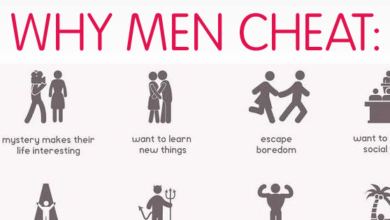
Introduction: Why Time Matters in Modern Dating
Dating today feels like a paradox. We have endless choices thanks to apps and social media, yet so many people still struggle to find fulfilling relationships. Swipe after swipe, first date after first date, months can slip by in situationships that go nowhere.
The biggest culprit? Lack of clarity. Too often, people dive into dating without knowing what they want—or worse, they ignore what they truly need for fear of scaring someone off. The result is wasted energy, prolonged heartbreak, and a nagging sense that love is always just out of reach.
But here’s the truth: when you date with intention, you reclaim your time. You stop confusing chemistry for compatibility, and you begin to invest only in relationships that align with your future. That doesn’t mean dating becomes mechanical or joyless. On the contrary, it becomes more freeing because you know you’re no longer settling.
What Does Dating with Intention Really Mean?
Dating with intention means approaching relationships with purpose. You aren’t leaving your love life to chance or drifting with “whatever happens.” Instead, you’re clear about:
- Who you are – your values, boundaries, and goals.
- What you want – long-term partnership, marriage, or something else.
- What you won’t tolerate – dishonesty, lack of ambition, incompatible values.
It’s about balance: blending emotional connection with conscious decision-making. You still allow space for attraction and spontaneity, but you don’t ignore the signs that someone isn’t aligned with your vision.
Think of it like house-hunting. If you’re serious about buying a home, you don’t waste time looking at places far outside your budget or with features that don’t match your needs. Dating with intention is the same: it filters out what doesn’t fit so you can focus on what does.
Why So Many People Waste Time in Dating
Let’s be real: most wasted time in relationships comes from ignoring red flags. Instead of walking away, people hope things will improve. Why?
- Fear of loneliness – Many would rather stay in the wrong relationship than face being alone.
- Chemistry over clarity – Attraction blinds us to incompatibility.
- Over-investing too soon – Jumping into exclusivity before truly knowing someone.
- Mixed signals – Believing someone’s “maybe” will eventually become a “yes.”
- Unclear intentions – Entering dating without asking the hard questions early.
A 2022 Psychology Today report highlights that misaligned expectations are a top predictor of dissatisfaction. Simply put, if you and your partner aren’t on the same page, it won’t matter how much attraction exists—the relationship will likely fizzle or feel draining.
Red Flags: Signs You’re Dating the Wrong Person
If you recognize these patterns, you may already be wasting time:
- Avoids future talk: They deflect when you ask about long-term plans.
- Emotional drain: You feel more anxious than secure after spending time with them.
- Value clash: Differences in religion, family goals, or lifestyle create tension.
- Inconsistency: Their words and actions don’t align.
- Unbalanced effort: You’re always initiating, planning, or compromising.
These aren’t just “quirks.” They are warning signals that you may be investing in someone who cannot give you the relationship you want.
Step One: Setting Your Intentions Before Dating
Before entering the dating scene, clarity begins with you. Ask:
- What is my relationship goal? (marriage, companionship, fun?)
- Which values are non-negotiable for me? (honesty, ambition, spirituality?)
- What are my dealbreakers? (cheating history, lack of commitment, opposing life plans?)
- What does my ideal relationship look like in 5 years?
By reflecting honestly, you create an inner compass that prevents you from drifting.
According to the Greater Good Science Center, couples who share core values and aligned goals report higher long-term satisfaction. This means knowing yourself first is the foundation for healthy relationships.
The Importance of Asking Direct Questions Early
Intentional dating means you don’t shy away from conversations that matter. The sooner you ask, the faster you’ll know if someone is aligned—or not.
Try asking:
- What are you looking for right now?
- How do you see your life in five years?
- What role does family or marriage play in your future?
It might feel awkward, but it saves you months of guessing. If someone resists clarity, that in itself is an answer: they’re likely not serious about building something long-term.
Table: Casual Dating vs. Intentional Dating
| Aspect | Casual Dating | Intentional Dating |
|---|---|---|
| Focus | Fun, short-term enjoyment | Long-term compatibility |
| Approach | Go with the flow | Ask clear questions early |
| Emotional investment | Often uneven | Balanced and conscious |
| Red flag response | Ignored or minimized | Acknowledged and acted upon |
| Time management | Months/years wasted on wrong partners | Faster clarity, less wasted energy |
Practical Steps to Stop Wasting Time
Here’s how to date with purpose while keeping your heart open:
- Define dealbreakers: Write them down and don’t negotiate.
- Watch actions, not promises: Words can mislead; consistency cannot.
- Don’t give unlimited chances: If a red flag repeats, walk away.
- Date multiple people early: Explore before narrowing down.
- Check emotional energy: Do you feel secure or constantly anxious?
- Set time checkpoints: If clarity hasn’t come after months, reevaluate.
Why Intentional Dating Is Empowering
When you date with clarity:
- You stop chasing unavailable people.
- You attract partners who value honesty and commitment.
- You protect your time, heart, and energy.
- You feel more confident and secure.
It’s less about eliminating fun and more about ensuring that fun doesn’t turn into years of wasted effort.
Real-Life Scenarios: How Intention Saves Time
- Scenario 1: Alex dated someone for two years who never introduced them to family. Once Alex set an intention for marriage, it became clear this partner wasn’t aligned. By walking away, Alex saved more years of waiting.
- Scenario 2: Priya asked a date within the first three weeks about long-term goals. The answer revealed their visions clashed, saving her months of investment.
- Scenario 3: James wrote down his non-negotiables. When he noticed a date constantly dismissing his career goals, he knew it was time to move on.
The Role of Boundaries in Dating with Intention
Boundaries are not walls; they are filters. They allow love in while keeping harm out. To date intentionally:
- Set clear communication standards (no ghosting, respect for time).
- Define personal space and pace for intimacy.
- Learn to say “no” without guilt.
Healthy boundaries ensure you don’t compromise your well-being in pursuit of love.
How to Spot a Compatible Partner Quickly
Compatibility doesn’t mean perfection. It means:
- Shared long-term goals.
- Respect for each other’s individuality.
- Ability to resolve conflict without toxicity.
- Emotional safety and openness.
These qualities often show up early—if you’re paying attention.
Mistakes People Make When Trying to Date with Intention
Shifting from casual dating to intentional dating can feel empowering, but it also comes with pitfalls. Many people make mistakes that end up sabotaging their efforts, often without realizing it. Below are the most common missteps—explained in detail—so you can avoid turning your search for love into another cycle of frustration.
1. Being Overly Rigid and Turning Dating into a Job Interview
One of the biggest mistakes is treating dates like interrogations. Asking about values and long-term goals is essential, but if it feels like a checklist, you risk killing the natural flow of connection.
- Example: Someone may ask ten rapid-fire questions on the first date—about finances, marriage timelines, and children. While those topics matter, cramming them into one conversation makes the interaction transactional rather than relational.
- The problem: This rigidity creates pressure. Instead of bonding, the other person feels judged or evaluated. Even a great match may walk away because the energy feels forced.
👉 Better approach: Spread intentional questions across several conversations. Allow organic discovery while still being clear about your standards.
2. Confusing Intention with Perfectionism
Another trap is believing that intentional dating means finding someone flawless. People fall into the “perfect partner” fantasy and reject good potential matches over minor imperfections.
- Example: Someone ends a promising connection because their date doesn’t share every single hobby, or because they had one awkward silence at dinner.
- The problem: By chasing perfection, you overlook compatibility that could develop into a strong relationship. Intentional dating is about values and long-term goals, not about nitpicking superficial traits.
👉 Better approach: Focus on alignment of vision and values, not unrealistic perfection. Imperfections are normal; what matters is whether they clash with your core needs.
3. Rushing Into Exclusivity Without Testing Compatibility
When you’re dating with purpose, it’s easy to think, “If this feels right, let’s commit immediately.” While enthusiasm is natural, rushing commitment often backfires.
- Example: Two people meet, share the same long-term vision, and jump into exclusivity within weeks. Months later, hidden incompatibilities—around finances, family, or conflict resolution—begin to surface.
- The problem: Without taking time to observe behavior in different settings, you risk discovering misalignment too late.
👉 Better approach: Allow dating to unfold gradually. Use the early months to observe consistency, emotional maturity, and how someone responds to challenges.
4. Ignoring Chemistry in Favor of Checklists
While being intentional means prioritizing compatibility, some people swing too far in the opposite direction. They choose partners who look great “on paper” but lack emotional or physical connection.
- Example: Someone keeps seeing a date because they share career ambitions, family values, and faith, yet there’s no spark. The relationship feels more like a business partnership than romance.
- The problem: Long-term relationships require emotional intimacy. Without chemistry, the bond may feel dull, leading to dissatisfaction later.
👉 Better approach: Balance heart and mind. Chemistry isn’t everything, but it’s a vital ingredient for sustaining love.
5. Settling Due to External Pressure
Cultural, family, or societal expectations can push people to compromise their standards. Pressure to “settle down” quickly often leads to unwise choices.
- Example: A 30-year-old feels pressured by family to marry soon. They commit to someone who isn’t truly aligned, just to stop the questions at family gatherings.
- The problem: Decisions made out of fear or pressure rarely lead to fulfilling relationships. You may end up feeling trapped, resentful, or emotionally unfulfilled.
👉 Better approach: Set your own timeline. Intentional dating is about your values and happiness, not meeting external deadlines.
6. Failing to Set and Enforce Boundaries
Many people start with clear intentions but abandon their boundaries once emotions get involved. They excuse red flags, accept disrespect, or allow situations that don’t align with their goals.
- Example: Someone states they don’t want a situationship but continues to entertain a partner who refuses exclusivity.
- The problem: By compromising boundaries, you dilute your intentions and risk falling back into cycles of wasted time.
👉 Better approach: Enforce boundaries consistently. If someone shows they can’t respect your standards, walk away—even if feelings are involved.
7. Misreading “Potential” as Reality
A classic trap in dating is falling for someone’s potential instead of who they are now. You might see traits they could develop and hold on, waiting for change.
- Example: Your partner says they want to “get serious” one day, but for months they avoid progress. You stay, hoping they’ll evolve.
- The problem: Dating with intention means evaluating who someone is today—not who they might be in the future.
👉 Better approach: Believe patterns, not promises. If someone isn’t aligned now, assume they won’t suddenly transform.
8. Overthinking and Analysis Paralysis
Intentional dating can make people hyper-analytical, leading to overthinking every word, text, or gesture. This creates unnecessary anxiety and steals joy from the experience.
- Example: Someone dissects every text message for hidden meaning, or stresses about whether laughing at the wrong joke “ruined” their chance.
- The problem: Overthinking prevents natural connection and may cause you to sabotage promising relationships.
👉 Better approach: Stay grounded. Use intention as a compass, but allow space for fun, spontaneity, and genuine connection.
9. Confusing Availability with Compatibility
Sometimes people mistake availability (someone showing strong interest) for compatibility. Just because someone is eager doesn’t mean they are right for you.
- Example: A date showers you with attention and pursues commitment quickly. But beneath the enthusiasm, your values or visions don’t align.
- The problem: Confusing intensity with alignment leads to rushed connections that collapse once reality sets in.
👉 Better approach: Look past eagerness. Compatibility requires shared goals, respect, and emotional safety—not just availability.
10. Believing Intention Guarantees Success
Finally, some people assume that once they adopt intentional dating, they’re guaranteed to find “the one” quickly. They become frustrated if results don’t appear right away.
- Example: Someone dates intentionally for six months, doesn’t find a match, and concludes, “This doesn’t work.”
- The problem: Intentional dating isn’t magic—it’s a strategy. It reduces wasted time but doesn’t erase the natural challenges of finding love.
👉 Better approach: Stay patient. Dating with intention ensures your efforts are productive, but like all worthwhile journeys, it still requires persistence.
The Bottom Line
The most common mistakes come from going to extremes—too rigid, too rushed, too forgiving, or too pressured. The key is balance: use intention to guide your choices without stripping away joy and authenticity.
When done right, intentional dating helps you avoid traps, focus on meaningful connections, and ultimately save years of wasted effort.
Balance is key: intentional dating should feel both structured and natural.
Conclusion: Choose Love with Clarity, Not Desperation
Dating without direction is like wandering in circles—you end up exhausted and nowhere closer to your goal. But intentional dating transforms the journey. It helps you filter out mismatches, protect your energy, and attract partners who are truly aligned with your vision.
When you stop chasing chemistry alone and start valuing compatibility, you create space for love that lasts. The shift is simple but powerful: clarity over confusion, intention over chance.









